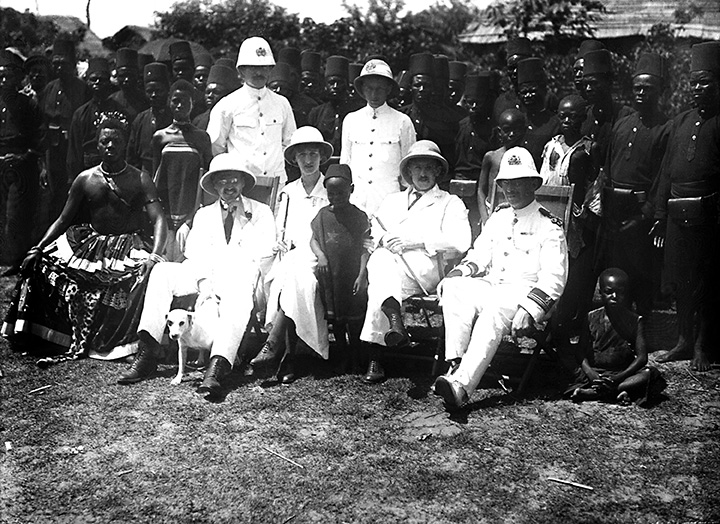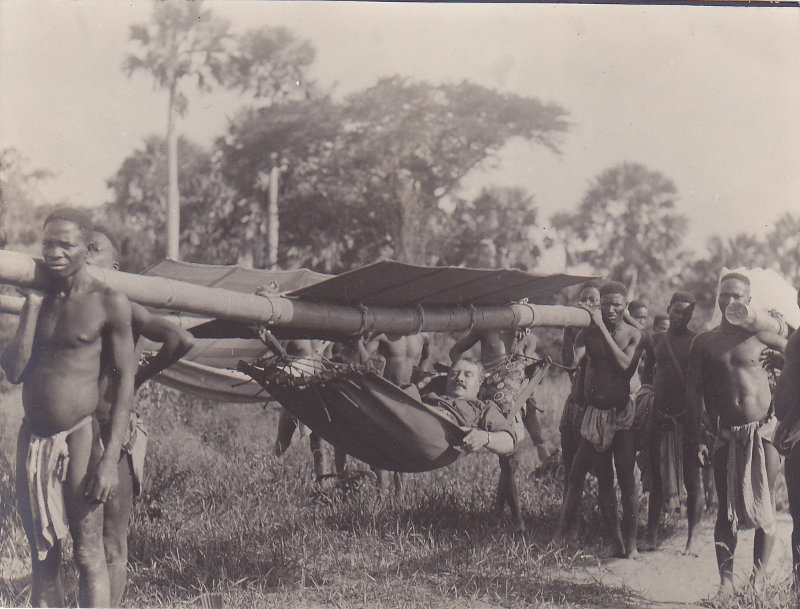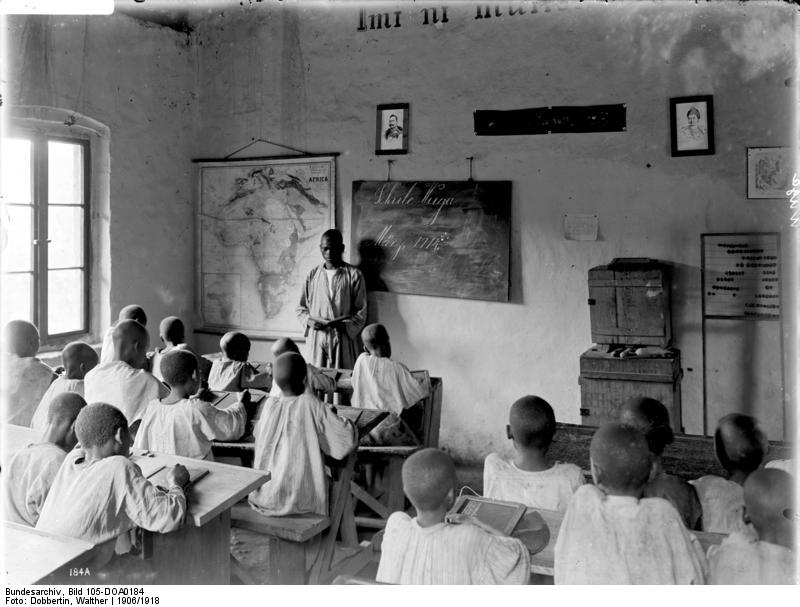Helen Deverell
Mrs. Hume
English 11
10/17/16
Akunna’s Point of View
I know what Okonkwo thought of me. In his mind, my intellect was comparable to that of one of his wives. I was womanly, weak, and cowardly. I know that he had no respect for a man like me; he did not understand my intentions. Okonkwo was not like Mr. Brown. Mr. Brown appreciated my motives, leveled with my religion, and respected my people. Who was Okonkwo to try and defend Umuofia from the very people who had come here to help us? Skin color is clearly no marking of relation, for I felt more like a brother to Mr. Brown than to Okonkwo. In threatening Mr. Brown, Okonkwo became a foreigner to me, and I lost all of my dwindling respect for him.
Competition had always been in Okonkwo’s blood. Ever since the dawn of our faux friendship, I knew that, in Okonkwo’s mind, we would be competing for every title worth having. When Okonkwo won his first wrestling match, he made sure to come to my obi and tell me about his achievement personally. He did so under the guise of inquiry about my father’s health, but I knew of his true motives. For these reasons, I did not mourn, nor did I protest, when Okonkwo’s exile was determined. He should not have been so clumsy with his gun. In truth, I was relieved when he left. Okonkwo was a strong leader, and had originally been a positive influence on the people of Umuofia. But, in recent years, I had watched the light fade from his eyes. Violence became his immediate response to even the littlest of disputes. He was a disaster waiting to happen.
When the white men first showed up, I was sceptical along with everyone else. I had not seen anyone of this nature before, and I had no idea what they planned on doing to Umuofia. I was treated with slight condescension from the white men, but they had done no harm and began to seem genuinely interested in the bettering of our clan. Their trading posts helped to bring money into our village, and they built a hospital to heal and a school to educate. Mr. Brown told us that having a proper Christian education was of utmost importance. He said that, if we did not send our children to school, less sympathetic white people who were able to read and write would come to Umuofia and overpower us. Many people, including Okonkwo’s son, went to school or began to learn how to teach, heeding the advice of Mr. Brown. So, when Okonkwo returned from exile, he was furious at the changes that had taken place while he was away. He had no way of understanding the progress that we had made; he was simply offended that his position was no longer important, that violence was no longer the way of our men. Mr. Brown and I talked about violence. In the white man’s world, violence is not so easily called upon, not so quickly resorted to. In Christianity, as he called it, people do not follow the law of tradition. We talked about religion as well. I told him about Chukwu, and he told me about his God. Both must be approached with equal parts fear and respect. I told Mr. Brown that he and his kotma were like God’s messengers. I told him that we had similar roles in the Igbo religion. We were not so different after all, Mr. Brown and I. After our conversation, I once watched him chastise his clan for treating my people poorly. Not every white man that he had brought was as respectful as he was. I sympathized with him, however, for not every Umuofian had been accepting towards the white men either. 

I knew enough to expect rage from Okonkwo when he found out Nwoye was training for a position in the white man’s world. Afterall, Okonkwo had always regarded Nwoye as womanly, as a disappointment, and what more feminine than the role of a teacher. Mr. Brown, however, did not know of this. He had good intentions in informing Okonkwo of his son’s path, and had no way of knowing about Okonkwo’s temper. When Mr. Brown told Okonkwo about Nwoye’s training, he was met with anger and extreme threats of the very violence the white men hoped to avoid. Mr. Brown, sad and ill, was forced to leave Umuofia. I will never forgive Okonkwo for this. On the day that Mr. Brown left, I lost a friend, and Umuofia lost stability. Things began to fall apart. 
Bibliography
Bibliography
I really enjoyed the concluding sentence. Even when you are not the original author of the story, you still tied the title of the book with your perspective story. I thought that was very interesting as well as creative. Not only to strengthen the story. It was also a sign and the effect of what has happend to Umuofia.
ReplyDeleteThis story's portrayal of Akunna's altering and shaping of his own actions and mindsets to conform to the presence of the white men in the village because of the benefits they carry offers a direct contrast to Okonkwo's unwillingness to change with the times. The ways in which this story describes Akunna's thoughts and reasons behind accepting the white men and feeling sympathetically towards them provides a new and interesting side to the greater story in Things Fall Apart.
ReplyDeleteYou did an effective job of creating an understanding from Akuna’s point of view not yet discovered in Things Fall Apart. Using the idea of Mr. Brown’s kindness to create a view of shared thought is a great story telling mechanism. The growing distance from Okonkwo throughout the story creates an ever present feeling of distance.
ReplyDeleteHelen- I thought your story effectively created a new perspective of an Umuofian who misses Mr. Brown. I liked this because it was a different perspective than those inside Things Fall Apart. I also liked the deep emotional connection between Akunna and Mr. Brown that you portrayed in your story. When Mr. Brown leaves Umuofia, Akunna not only loses a great teacher and mentor, but he loses a close, respected friend.
ReplyDeleteThroughout the story, you used a casual, nostalgic style that was very compelling and enjoyable to read, but one particular element of this story that stood out to me was the narrator’s casual paraphrasing of Mr. Brown’s words. Throughout your piece, as Akunna reminisces on his friendship with Mr. Brown, he cites their genuine conversations as part of their friendship, and paraphrases the things he learns from Mr. Bronw. When he casually describes Mr. Brown’s teachings and opinions (examples of sentences include “Mr. Brown and I talked about violence.” and “In the white man’s world, violence is not so easily called upon, not so quickly resorted to”) his choice to paraphrase demonstrates that he actually understood and internalized what Mr. Brown was saying, and that they had substantive discussions in which they talked as peers. Your choice to keep the narrative style nostalgically informal reflected a sense of kinship and understanding between Akunna and Mr. Brown which defied the patterns observed in the relationships between missionaries and indigenous people, and showed the genuine nature of their friendship.
ReplyDelete